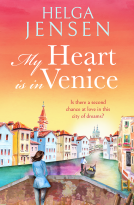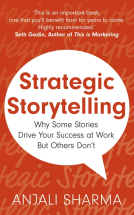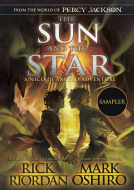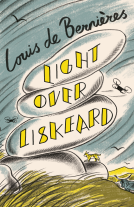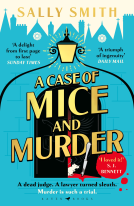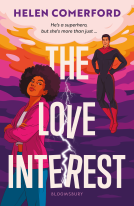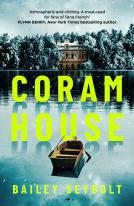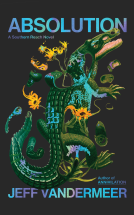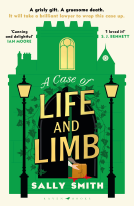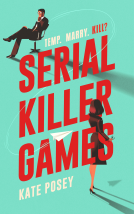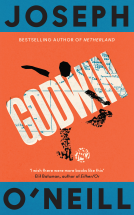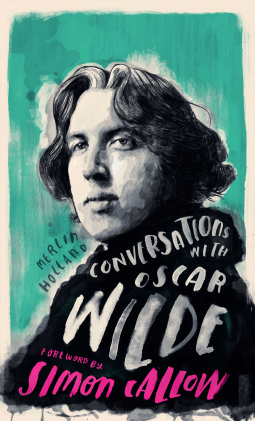
Conversations with Wilde
A Fictional Dialogue Based on Biographical Facts
by Merlin Holland
This title was previously available on NetGalley and is now archived.
Send NetGalley books directly to your Kindle or Kindle app
1
To read on a Kindle or Kindle app, please add kindle@netgalley.com as an approved email address to receive files in your Amazon account. Click here for step-by-step instructions.
2
Also find your Kindle email address within your Amazon account, and enter it here.
Pub Date 11 Jun 2019 | Archive Date 2 Jul 2019
Watkins | Watkins Publishing
Talking about this book? Use #ConversationsWithOscarWilde #NetGalley. More hashtag tips!
Description
Renowned for his endlessly quotable pronouncements, Oscar Wilde cut a dashing figure in late Victorian London ... until his tragic downfall resulting from an ill-judged libel action. We remember him not only for his famous trial and imprisonment, but also for a "devil's dictionary" of timeless aphorisms and for the enduring brilliance of plays such as The Importance of Being Earnest.
Wilde's life resembles his early short story, "The Remarkable Rocket", which, rising from nowhere in a shower of sparks, explodes and falls to earth, exclaiming as it goes out, "I knew I should create a great sensation." Merlin Holland expertly traces the arc of his illustrious ancestor's life, from his birth in Dublin in 1854 as Oscar Fingal O'Flahertie Wills Wilde, to a brilliant career at Oxford University where his reputation for dandyish wit was first honed, through to his conquest of the drawing rooms and theatres of fashionable London, culminating in disgrace and imprisonment at the hands of the Marquess of Queensberry in the most notorious libel trial in English history. Wilde died in penury and obscurity in 1900, yet his reputation today has never been greater.
This engaging and innovative short book features a concise biographical essay on Wilde's meteoric career, followed by a Q&A interview based on Wilde's own words and Merlin Holland's unrivalled knowledge of his grandfather's life, work and puckish observations. This sparkling biography does full justice to Oscar Wilde's writerly genius and irrepressible humanity. It offers readers a renewed appreciation for a man who at times scadalised his era as much as he delights our own.
Available Editions
| EDITION | Other Format |
| ISBN | 9781786782304 |
| PRICE | US$14.95 (USD) |
| PAGES | 128 |
Featured Reviews
Thank you to Netgalley for providing me with this book, in exchange for my honest opinion. This book will be available to purchase on June 11th.
I was interested in this book for two reasons: First, I loved The Picture of Dorian Gray. Second, the idea of a fictional conversation with Wilde is fantastically original. The closest to that setup I’ve read is The Screwtape Letters by C.S. Lewis, which I really enjoyed, and of course there’s no biographical angle with that.
This book was so much fun! Oscar Wilde was larger than life in many ways, which Holland conveyed with ease. During the course of this book, I realized that I knew far less about his life than I thought. Despite his levity, Oscar Wilde’s life was tragic in many ways.
What set this apart from many other biographies is the sense of fun the entire book had about itself. It really did feel like an interview over cigarettes. I would gladly read more books written in this style by this author.
At less than 200 pages, this books can easily be read in an afternoon, but the facts thrown in, combined with the engaging conversational feel will keep you thinking about it long after you finish the last word. I definitely recommend this fun fact-based fiction.
 Paula B, Reviewer
Paula B, Reviewer
Who has not at some point read, overheard or discovered themselves quoting a witty epigram accredited to the Irish dramatist Oscar Wilde? We frequently find ourselves able to “resist everything except temptation” or ironically forgiving our enemies because “nothing annoys them so much”, but how often, I wonder, do we stop to consider the person behind the pithy aphorisms?
Oscar Fingal O’Flahertie Wills Wilde (1854-1900) was a hugely popular playwright and spokesperson for aestheticism in the latter decades of the 19th century. He became successful in numerous spheres, from penning clever essays and writing a Gothic novel (The Picture of Dorian Gray, 1890) to lecturing in America and editing a fashionable ladies’ periodical (The Woman’s World). It was, though, with his amusing but subversive comedies of manners that he became a sensation among Victorian theatregoers. At the very height of his celebrity, however, he was convicted for ‘gross indecency with men’ and sentenced to two-years’ hard labour. On his release in 1897, he was broken in body and spirit. He died alone and in penury at the age of 46.
In his excellent Foreword to Conversations with Wilde, Simon Callow describes Oscar’s fame as “never being greater.” Indeed, in the modern world he is widely remembered for being a gifted writer, conversationalist and gay martyr – but this was far from true during his lifetime. Indeed, he was treated as a pariah by the British establishment and cast out of ‘decent’ society. As Callow so impeccably asserts: “His savage treatment at the hands of the English law was for many generations a potent image of its vicious absurdity, and its eventual reform is in some senses a posthumous redemption of his suffering.”
Merlin Holland – biographer, editor and sole grandson of Oscar Wilde – has for many years researched his grandfather’s life and works. In this “fictional dialogue based on biographical facts”, Holland deftly traces his distinguished relative from his birth in Dublin to those heady days at Oxford University; through the scintillating conversations in London’s finest drawing rooms to his great literary triumphs; leading us inexorably towards Lord Alfred Douglas and Wilde’s final humiliating downfall.
This innovative little book – part of a series that currently includes Conversations with JFK by Michael O’Brien and Conversations with Casanova by Derek Parker – presents a biographical essay followed by a question and answer style interview with Oscar, which is greatly enhanced by Holland’s intimate knowledge of his subject.
Conversations with Wilde is an entertaining read tinged with sadness and not a little bitterness for the cruel ruination of a unique talent at the peak of his creative genius. It also brings to the fore the many and varied reasons why almost 120 years after his death we continue to adore Oscar Wilde.
I’ve adored Oscar Wilde for most of my life. My parents used to buy my six Great Illustrated Classics every Christmas, and my favorite of these when I was about eight was The Picture of Dorian Gray. I can’t even count how many times I read that little abridged classic, but I would say that number is in the literal dozens. In fact, I loved it so much that I was afraid of reading the unabridged classic as an adult, for fear that it wouldn’t measure up to the book I had loved so much as a child. I couldn’t have been more wrong, while the illustrated classic of my childhood gave me the story, it didn’t deliver Wilde’s prose. I had no idea what I was missing. Today, Wilde’s original, unabridged novel is one of my very favorite classics I’ve ever read.
In college, I learned the story behind the author, from his flamboyant personality to his time spent in prison. However, while I found him a very interesting individual at that time, I am now completely fascinated by him. That is mostly thanks to this book. Holland has written one of the most engaging biographies I’ve ever read, in large part due to the informal, conversational format. The author imagined himself interviewing Wilde over a cup of coffee, and he managed to beautifully capture Wilde’s well-known voice in these responses. It was a lovely writing decision. I truly felt as though I was sitting in on an interview with a literary icon, and it was immensely enjoyable.
Wilde was the Freddy Mercury of Victorian England, and the world wasn’t ready for him. He was witty and insanely intelligent and obsessed with all things beautiful and pleasurable. He created gorgeous art that far outlived him, but has been forever remembered for his (at the time) shocking lifestyle decisions and the ramifications he suffered for them. Wilde undoubtedly marched to the beat of his own drum, and couldn’t care less that the majority of society didn’t understand that rhythm.
Holland’s little book did an amazing job presenting Wilde’s life, and I read it in an afternoon. My only complaint is that is wasn’t longer. But I think that this conversational style was a perfect choice for crafting an informative, engaging, highly readable biographical overview of a life that captivated and repelled the world in which he lived. I highly recommend this little book to anyone who has any kind of interest in literary rebels. I would love to read more biographical works written along the same lines, and am very open to recommendations!
I adored this, I love Oscar Wilde and I wish there was much, much more of his work. This was so interesting to read something new and a different perspective which shows even more to the great man.
Thanks to netgalley and the publisher for a free copy for an honest opinion
 Martie N, Reviewer
Martie N, Reviewer
Genre: Fictional Biographies & Memoirs, Historical Fiction
Publisher: Watkins Publishing
Pub. Date: June 11, 2019
This story is one in a series regarding other imagined conversations with legendary people. The infamous Oscar Fingal O’Flahertie Wills Wilde (1854-1900) is easily one of the most paramount playwrights of the Victorian age. This novel was originally published under the title “Coffee with Oscar Wilde.” No matter the name, what a treat to review this clever novel about a fictional conversation with Oscar Wilde, over coffee and a cigarette. The premise of the tale is that Wilde is being interviewed by an unnamed interviewer. What makes this book so clever is that he is being interviewed in the present. The author never explains how this phenomenon happens. Still, much fun to read Wilde’s possible views on histories’ take on him. Or how appalled Wilde might be to learn that smoking is now frowned upon. “A cigarette is the perfect type of a perfect pleasure.”― Oscar Wilde, “The Picture of Dorian Gray”
Set in Paris, where he fled once released from prison after the scandalous trial that revealed his homosexuality. During the trial, he was actually accused of being his character, who never ages, from his novel “The Picture of Dorian Gray.” The story comes so close to spelling out homosexual desire. In 1945 the book was turned into a movie. In Holland’s book, the author is at his wittiest channeling Wilde’s feelings about the trial. He does a wonderful job of showing Wilde’s misjudgment on what would be the trial’s outcome. After all, at that time in his life, Oscar was the darling of upper-class society.
In the books prologue the author explains that in writing the novel he did not cut out Wilde’s quotes and sew them back together. He feared that would become a book of one-liners. Instead, he wrote Wilde’s words without always being recognizable. He did this by heavily researching his works and letters. The result feels fresh. This book is a fast (under 200 pages) and a delightful read. However, it is easy to imagine that if you are familiar with all the aspects of Wilde’s life it may not be as impressive. Personally, I was surprised to learn that Oscar was married and had two children. I enjoyed reading about the close relationship he had with his mother, and the lover who caused his downfall. I was so impressed with this concept of a fictional memoir that I hope to read “Conversations with Mozart” by Simon Parke.
Readers who liked this book also liked:
Rick Riordan; Mark Oshiro
Children's Fiction, LGBTQIA, Teens & YA
Keith Martin; Konstantinos Mersinas; Guido Schmitz; Jassim Happa
Business, Leadership, Finance, Computers & Technology, Reference
Vincent B. "Chip" LoCoco
Historical Fiction, Horror, Mystery & Thrillers
